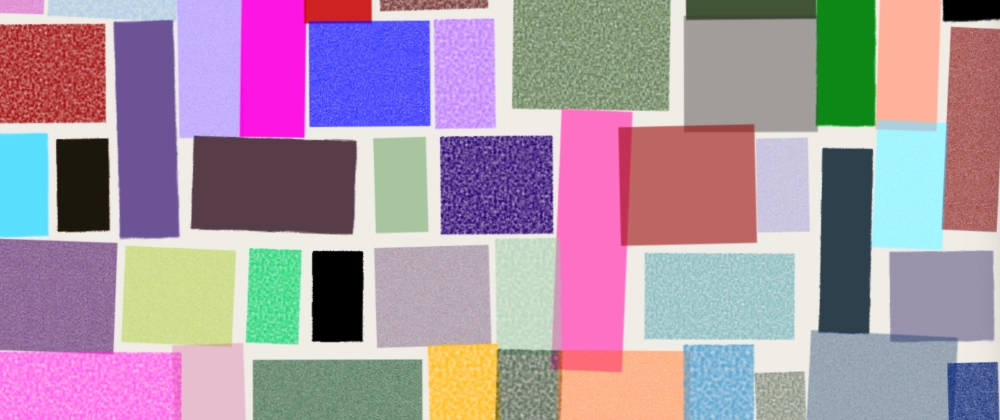Have you ever explored the power of grid-auto-flow: dense? When combined with randomly generated values (constrained within a set range), you can use grid-column and grid-row properties to create cool, grid-based art. Let’s dive in!
First, let’s create a base grid structure:
main {
display: grid;
grid-auto-flow: dense;
grid-template-columns: repeat(auto-fill,
minmax(var(--w, 4cqi), 1fr));
}
-
display: grid: Establishes a CSS grid layout. -
grid-auto-flow: dense: Automatically fills gaps in the grid by repositioning items to minimize empty spaces. -
grid-template-columns: Defines a responsive column layout. Here, columns are created automatically to fill the available space (auto-fill), each with a minimum width of--w(defaulting to4cqi) and a maximum width of1fr.
At this point, --w is undefined, so the default value (4cqi) is used. Here’s what the initial grid looks like:
Next, we’ll fill the grid with a bunch of <b>-nodes. As we render these with JavaScript, we add 2 variables per node:
-
--gc: Number of columns to span. -
--gr: Number of rows to span.
Here’s how we generate random values in JavaScript:
const random = (min, max) =>
Math.random() * (max - min) + min
const column = () =>
`--gc:${Math.floor(random(0, 4))};`
const row = () =>
`--gr:${Math.floor(random(0, 3))};`
In CSS, we apply these custom properties:
b {
background: oklch(var(--l) var(--c) var(--h) / var(--a));
grid-column: span var(--gc);
grid-row: span var(--gr, 1);
}
Let’s also add some random colors in oklch, using a small helper method:
const color = () => `--l:${
random(0, 100)}%;--c:${
random(0, 0.5)};--h:${
random(0, 60)};--a:${
random(0.2, 1)};`
Now we get:
Thank you, grid-auto-flow: dense!
To make things more dynamic, let’s add transformations like rotation and scaling:
b {
rotate: var(--r);
scale: var(--s);
}
In JavaScript, we generate random transformation values:
const transform = () =>
`--r:${random(-2, 3)}deg;
--s:${random(0.8, 1.2)};`
Let’s check it out:
Fancy! Now, to take it up a notch, let’s add some cool SVG filters.
In JavaScript, we add another small helper method to pick a random filter per <b>-node:
const filter = () =>
`--url:url(#${
[
"pencilTexture",
"pencilTexture2",
"pencilTexture3",
"pencilTexture4",
][Math.floor(random(0, 4))]
});`
This gives us:
Now, by simply adjusting the --w property and the number of elements, we can generate vastly different artworks:
Or:
We can also adjust the start- and stop values in the color method:
Demo
Here’s a Codepen demo. I've added controls below the artwork, so you can easily tweak the properties:










Top comments (13)
This is quite an interesting thing to play around with. Imagine you are creating a detective game and you want to have such a scene where you have a pec board with all the evidence and pictures, you can make them in this way.
Thanks for the write up.
thats a very good idea
Thanks, and great idea with the board!
I had a lot of fun playing with the sliders I must say!
Now I just need a "quirky / playful" project to work on so I can steal it and use it! haha.
Maybe a detective game, as Ravin suggested?
I've been thinking about ways to generate interesting mazes for games, and your post has really inspired me. Thanks!
Happy to hear that!
Loving the idea!
Great!
Thank you for including pictures! XD this is cool.
Thank you!
Awesome! thanks
Thank you!